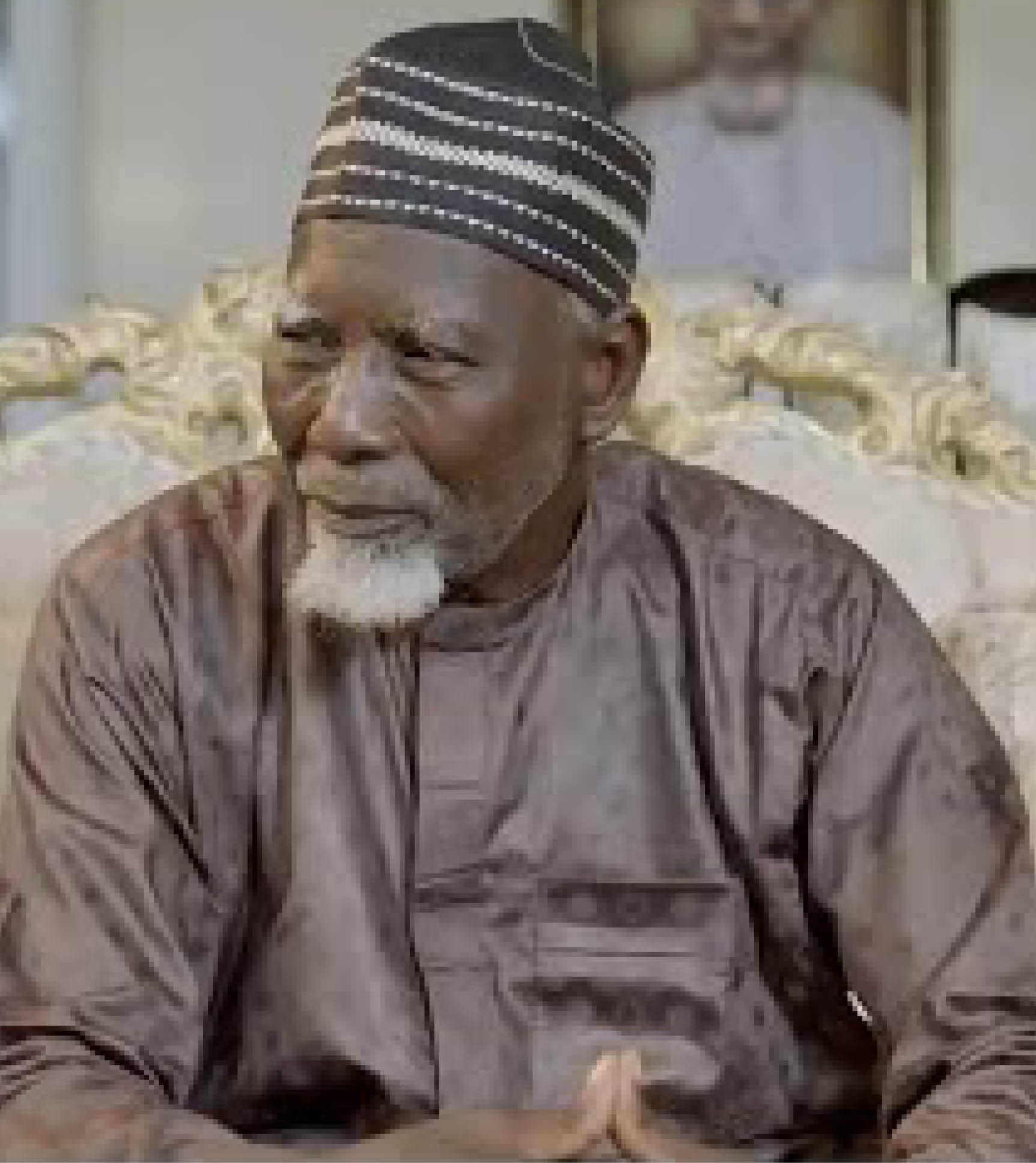Musa Muhammad Abdullahi, popularly known as Baba Musa, is a veteran Kannywood actor who started acting before the inception of Kannywood and plays a big role in the popular Hausa series ‘Kwana Casa’in’. In this interview, he talks about how film started, evolved in northern Nigeria, and the way forward.
How did your movie career start?
- Five Things To Know About Dejo, Late Nollywood Comic Actor
- Kannywood to Nollywood: Ali Nuhu, Rahama Sadau, other Northern actors bridging the gap
I was born in Zaria, but grew up in Kaduna. I started working as a teacher and later moved to the Ministry of Art and Culture. I also worked with the Kaduna State Ministry of Sport, and then back to Art and Culture where I retired as a director. I am about 70 years of age now.
Talking about film, I started acting since my primary school days. During that time, there was a film competition, and one Luka Gadani who was our teacher selected me as one of the representatives of LEA Maiduguri Road. That was how it started, and in class 3, I was selected as the chairman of Drama Club, which was rare because I had my seniors in school still around. I won many trophies for my school back then.
At an award presentation to me, popular Hausa writer Abubakar Ladan who wrote the book ‘Magana jari ce’ advised me to keep pushing in the Hausa film industry. It was Art and Culture that requested me to work with them where I scripted stories and act. That was how I started acting, and till now, we are still pushing. But I am about to retire.
You mentioned that you wrote scripts; did you start your career as a scriptwriter?
During our time, if you are an actor, you must know how to write and script stories. You are the one to write your story, script and submit it. In fact, I was the one that used to script our drama ideas when I was in school.
As a veteran in the industry, there is a debate as to where exactly the Hausa film started, Kaduna or Kano. What can you say about this?
Hausa film started in Kaduna long before Kano. That time, the Kano actors used to come to Kaduna to act and go back. The only person among them that is still alive now is Kaukuzu, that is Abdullahi Kano who is also known as Audu Kano. But the people that were coming to Kaduna during that time were Manta Sabo, Alhaji Buguzum, Malam Mamman and Karkuzu. All are no more, except Karkuzu.
Film making started in Kaduna before 1907 because when they were working on the rail track between Zungeru and Kafanchan in 1907, film activities were ongoing.
The first film association was created in 1920 here in Kaduna. The people that created the association were Malam Mamman Gwamna, Bala Keffi and Abdullahi Yaro and others. All I am telling you is fully documented on page 104 of a book ‘History of Kaduna’, by Dr Yusuf Nadabo who is now a lecturer at the Kaduna State University. And you can also search at the National Archive.
Can you remember the types of films you did back then?
We were doing movies like Tambari and many others. Our dramas are always centred on educating people. And if the government wants to introduce a new policy, they call us and we script a drama to educate people on what and how they should go about it. For example, when Nigeria changed from right to left hand driving, I think in 1972 or 1973, we did a drama to educate people on the new policy of the government. Also, when the country was planning to change currency usage from Pounds and Shilling to Naira and Kobo, we did a drama on that to educate our people.
There is another drama, ‘Baban Larai ya yi noman audugu’. It was also a film on the importance of cotton farming. Muhammad Akawu acted as Baban Larai and he is still alive. Another film I still recall is ‘Mutuwa dole’ which was a call against drug abuse. Haruna Danjuma Rigachikun is the actor. His name is Zico in the drama, and he acted as a drug dealer.
Seeing all that, and the metamorphosis, what can you say about the film industry when you started and now that we have Kannywood?
There are differences. As I told you earlier, we script our lines and act. So, you have to be creative to act during our time. Sometimes, you spend nights trying to script an idea and how you want it to be. And when we were starting, we had the ideology and orientation of defending our region, culture and religion.
I once had an encounter with one Igbo boy who scripted an idea about the Civil War, and I told him there were errors in the story because it was one sided. I told him he was too young to know what exactly happened. He listened to me and corrected the story. So, during that time, culture and region were well protected.
But nowadays, some films are mere copies of Indian and American movies. The stories are not original. But thank God, things have again started to change for good. Now, we have started scripting good movies from our stories. And from the stories and our new films, I can say there is light at the end of the tunnel.
However, during our time the equipment weren’t as advanced as we have now.
Your movie ‘Shamsiyya’ was very popular in the 1990s, can we say it is your best?
I can’t state just one movie as my best. But perhaps looking at how popular some are, I think people may want me to mention them as my biggest.
The Shamsiyya for example, which we did in 1994, was very popular and people liked it a lot and it made me popular.
There is ‘Wasila’ which was also very popular. People still call me Baban Wasila. But these days, what people talk of more is the popular Hausa series which is been aired in Arewa24 ‘Kwana Casa’in’. On every episode that is out, many call me to talk about it. I acted as Audu Baita.
What are the biggest challenges you face so far?
I have seen a lot in the movie industry. There was a movie we did on how some females use the hijab to do some evil. During the time, religion extremism was on the high. So, extremist said all of us that acted in the movie should be killed.
One day, I was walking around Tudun Wada Kaduna and one of the boys recognized me and informed the rest that ‘this baba is one of them’, so they approached me trying to attack me. Luckily enough, the youths of the area came to my rescue and police arrested them all.
Another that I can never forget is a movie we were producing for TV Kaduna, which we used for a drama competition called Telefest. In one of the episodes where I acted as a politician, thugs attacked me and threw me inside River Kaduna. After they tied my hands and dumped me in the river, I saw a crocodile approaching from afar, and the producer, late Umar Hassan, also saw it coming and he quickly shouted and had me rescued. I escaped unharmed. I thank God for the gift of life.
After all the struggles, what can you say about the future of the Hausa film industry?
The future is bright. But I will call on the younger ones to be united. One of the biggest challenges facing the industry is lack of unity. If an actor is having a problem like illness, I become worried when I see him looking for help, whereas his colleagues can help him.
Can we say government today is not helping the industry, compared to what you said the government used to do back then?
I think government is doing its best, the problem is for us. In 2018, we went to President Muhammadu Buhari and sought for his intervention in four different things, and he approved all. We wanted empowerment, a Film Village, we requested the Film Corporation Jos to be upgraded to Commission and we requested Zuma Festival to be national. But when the empowerment came, what happened? The government can do better.

 Join Daily Trust WhatsApp Community For Quick Access To News and Happenings Around You.
Join Daily Trust WhatsApp Community For Quick Access To News and Happenings Around You.


